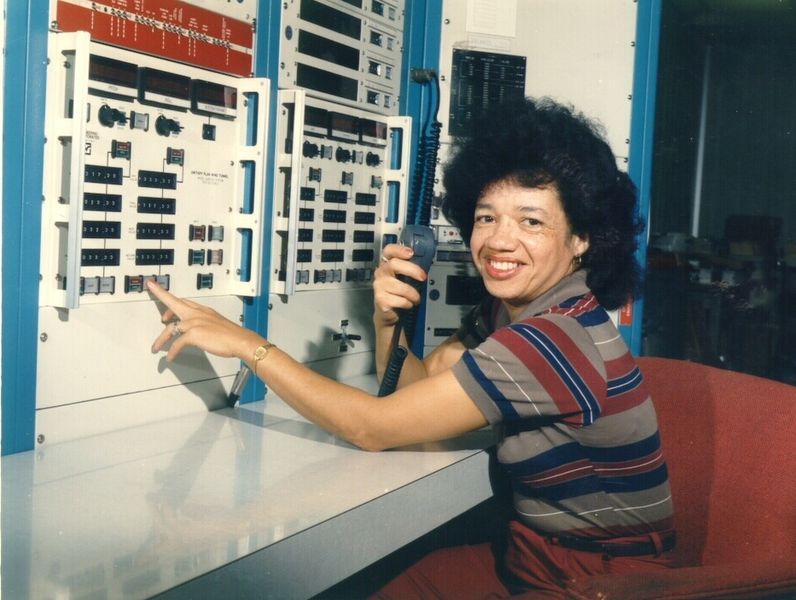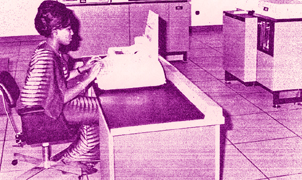For next class, post an article you’d like to discuss, and a brief explanation (200 words) of why you’d like to talk about it, by April 18th at 10pm. Your explanation of why you’d like to talk about the article you’ve chosen should relate your article to something we’ve grappled with understanding in class–be it a theory or a particular subject. This is your turn to share your insights and move our collective knowledge-making project along. Try to choose articles that will help us take what we’ve studied in class a step or two further and help us gain new insight into the technologies we live with and within.
Suggested sources for articles: The Guardian; The New York Times; The LA Times, Wired; NPR (Audio or written); The Atlantic*; JSTOR*.
*If you choose a long article (anything over 3,000 words) provide a 200 word abstract–that you have written–telling us in your own words what the article is about. Do this in addition to your explanation.
Avoid media sources that are more “infotainment” than news, and those that have short articles or convey news by video. Places to avoid include sites like Gizmodo, Buzzfeed, CNN, Fox News, Huffington Post, and Salon. If you have seen something on one of these sites that you’d really like to discuss, try to find the original source of the article and link to that; often these sites are re-hashing work that’s been done elsewhere.




Article:
‘It’s harder to kill off gay characters when they’re trending.’ by Angela Watercutter
This Article can be used for several discussions related to class. One of them being where does the power lie? In the article, it talks about fans being able to write and re-write stories, when lots of fans get upset, they even can threaten the further existence of a show.
Later, it also talks about how to solve possible ‘bad’ moves and keep the fans happy. However, the beginning of the article starts off with how the internet made it more difficult for tv shows to write off gay character, especially when they have gained some fame.
There is also another possible discussion topic; such as how institutional sexism gets taken down by it’s users/consumers.
“The Minecraft Generation” by Clive Thompson, The New York Times Magazine
This article examines the features that appeal to so many people in the popular computer game Minecraft. It praises its open-endedness, endless possibilities of creative interpretation, realistic features (building with blocks, modeling computer circuits), and capacity for generating supportive learning communities. It sets this game apart from other games, in which there are strict rules, centralized control, and little flexibility as far as creativity goes.
What I would like to discuss is how the theories we learned about help us better understand Minecraft. A great appeal of this game seems to be the ability of the players to create their own communities, where they can set their own rules. This can be regarded as the interpretive flexibility stage. Recently, the game was acquired by Microsoft. Does this mean that the game will take a more restricted shape and come to some point of stabilization? On the other hand, actor network theory could be applied if the game is extensively used as a teaching tool. Technological determinism theory could look at how playing Minecraft affects the players physical and mental condition, their technical and social skills. How much do players influence the game vs. the game affects the players?
This is very interesting to me because ever since the Edward Snowden leaking incident, I did not think anyone was in contact with him so when he commented on the Australian law the curbed personal privacy, I was surprised. The topic was internet privacy and this goes well with the rhetorical question of who controls the internet? whether its the government who passes the laws to constrict general usage or the people who uses the internet who essentially govern themselves. The whole controversy lies in what the government can or cannot do to control the internet. Is internet surveillance a form of privacy breach? Are the governments actions justified? What are some political repercussions to their actions both locally and internationally? Overall, I think that this article can lead to a lot of discussion as to what was okay to do (if any) and what could have been done better to get what the government really wanted because I’m sure that there were a lot of politics involved in this and not just about controlling the internet.
I would like to discuss about the following article:
http://www.wired.com/2016/04/supermarket-must-die-app-fueled-services-can-kill/
“The Supermarket Must Die. App-Fueled Services Can Kill It.”
by Courtney Balestier
The reason for proposing this article is that the article discusses about four different app-based grocery delivery services and each of these services has their own social structure embedded in the operation. It is very interesting to see how these different centralized or decentralized social structures are intentionally embedded to the technological arrangement in the services, which in turn changes the way people will do grocery shopping in the future. The ways the production and delivery networks are arranged also makes an interesting way to look at the Actor Network Theory. Most of all, all of the services utilizes employee who are in some sense “online warehouse workers”, and therefore, the article gives rise to a question “Is this type of working environment the future of the basic workers?”
How Early Computer Games Influenced Internet Culture
by Adrienne LaFrance
http://www.theatlantic.com/technology/archive/2016/04/how-early-computer-games-influenced-internet-culture/478167/
This article describes the relationship between early computer gaming as an activity for mischievous youths and the broad technological literacy that we have today. It also describes the importance of gaming on changing public perception of computers and touches briefly on gaming’s influence on net neutrality.
The article struck me initially as a fantastic example of the moral panic associated with new technologies. LaFrance describes how adults were hesitant to accept video games into popular culture, with The New York Times forecasting the death of reading in 1994. Naturally, she says, “computer games did not destroy reading.”
Additionally, the article presents two interesting examples of Actor Network Theory at work: first, the explanation of the intent by Macintosh and Nintendo to “black box” their hardware in order to prevent hackers and other curious, creative-types from using the technology in unintended ways, and second, a mention of the incredible influence gaming has had over many aspects of our lives including game-like systems built into daily learning and working.
A question I would ask the class is, to what extent do you think computer gaming has influenced your life, outside of the “specific play-experience?”
I’d like to talk about this as it is a good example of technological determinism. I’ve never owned a smartphone before; I have a ‘dumb’ phone. As a result I’ve been out of the loop; I feel that I’m different from my friends who use smartphones and by extension, social media even when out and about.
I think most people are more familiar with and have more exposure to communication with the people in their lives through such mediums such that they’ve developed habits that I don’t have. One of those is the apparent repulsion to voice mails. None of my friends like voicemail and seem to avoid it like the plague. I always believed it was a good way to get an urgent message across, but even talking on the phone seems undesirable, so when I finally “got” that this was the case, I could never quite understand why. It went against what seemed logical to me, as someone who didn’t frequently use social media or have constant access to it.
To clarify, I’m capable of leaving voicemails, but my phone isn’t capable of receiving them from others. However, after reading this article and thinking about it, it makes more sense to me why those that can, prefer not to. It also helps that in recent years, I’ve been using more social media as well, albeit on desktop versions of sites like Facebook. It all has to do with convenience and ease of access. I’m interested in hearing what the class has to say.
News Site: NPR
Article Link: http://www.npr.org/sections/alltechconsidered/2014/10/23/358301467/please-do-not-leave-a-message-why-millennials-hate-voice-mail
Article link:
http://www.npr.org/sections/thetwo-way/2016/03/10/469994735/apple-vs-the-government-in-their-own-words
Reason for Discussion:
The intent of discussing this article would be to further our understanding of the effects that black boxing technology has on society. Apple is adamant about keeping its coding software private as it wants to protect its customers’ privacy and its reputation for being almost immune to viruses and releasing this information would threaten that. Overall, is apples black boxing of its security software an overstep of its authority over its own technology or are they in the right to retain proprietary information as its creator?
SUMMARY:
In this article, the discussion of breastfeeding, breast pumps, and the incarcerated female population were the topics of interest. The technology that I am focusing on is the breast pump and the power that the omission has on the incarcerated. Not only is the birthing process of an incarcerated mother gruesome, but a mother’s right to form a bond with her child is quickly taken from her also. The repercussions of not allowing a mother and child to form a healthy bond right after birth is also known to cause issues with attachment and mental health stressors. Most incarcerated mothers want to provide their babies with the health benefits that coming with breast milk but due to the restrictions of their holding cell they are unable to be granted access to a breast pump. In this case as the article said “ No immutable anti-pump policies existed on the books, but since no laws demanded that breast pumps be permitted, they just weren’t.” Therefore, the breast pump can be seen as a non-human actor in this sense. This article then can be torn apart by using either ANT, SCOT, and Technological determinism.
ARTICLE:
Female prisoners’ babies shouldn’t be sentenced to life without breast milk, by Maya Schenwar
http://www.theguardian.com/commentisfree/2013/oct/22/women-prison-babies-no-breast-pump
Last July, as my parents and I sat munching Bugles around a visiting room table with my incarcerated sister in an Illinois state prison, a cry rang out from the table next to us. There, a bawling infant lay cradled in the arms of a visitor. She smoothed the baby’s soft hair, then surreptitiously opened her shirt to nurse it. The baby simmered down immediately, happily sucking away.
Our conversation went silent, and my sister averted her eyes. She was 34 weeks pregnant herself. “Well,” she said, patting her gigantic moon of a belly, “that’s not gonna be us.” Like almost all jails and prisons, her current locale didn’t accommodate either breast pumps or nursing during visits.
Instead, my sister had this to anticipate: 24 hours after giving birth – in a scheduled, induced labor, with guards standing by and no family permitted – her newborn would be taken from her (pdf). After that, she’d be serving two and a half more months in prison. By the time of release, her body would have long stopped producing milk.
Although between 4 to 7% of female prisoners are pregnant, few are permitted to breastfeed, to use a breast pump to provide frozen breast milk to their babies, or even to “pump and dump” milk so they can breastfeed upon release.
For prisoners, the denial of the right to breastfeed is systemic, yanking the option from mothers deprived of almost all other means to care for and bond with their newborns. Skin-to-skin contact cements the mother-baby connection in the critical earliest months of life, and even the chance to pump and provide milk (without contact) promotes maternal attachment. For babies, that maternal bond may well be the number-one predictor of healthy child development. For prisoners like my sister, who have already been severed from their communities in many ways, that maternal-baby bond could be a key path to reconnection, heightening their chances (pdf) of avoiding re-offense and recidivism.
When I asked around about why postpartum prisoners couldn’t even use breast pumps to keep the milk flowing until their release (most new mothers have relatively short sentences, so retaining the ability to produce milk is a useful goal), advocates told me that state departments of corrections tend to deem breast pumps a “security violation”. In fact, in a Nevada case (pdf) in which a prisoner was medically prescribed a breast pump, the pump was confiscated upon reentry into the prison.
And so the vast majority of the 10,000 babies born to prisoners each year are not only deprived of the most important thing in the world to them – their mothers –they’re also deprived of the possibility of mother’s milk.
The right to breastfeed is, at its base, a community health issue: studies show that breast milk plays a powerful role in nurturing babies’ immune systems. It carries crucial antibodies, reducing the risk of respiratory illness, diarrhea, allergies and Sudden Infant Death Syndrome. As they grow older, kids who were breastfed are less likely to develop diabetes, high blood pressure and cancer. Breastfeeding has even been shown to improve lifelong cognition.
Thus, the breast milk barrier denies prisoners’ children access to a natural (and cost-free) source of preventive health care. Children of color and poor children are disproportionately punished, since those populations are significantly overrepresented in prison, and also seriously overrepresented when it comes to illness.
In the month after our visit to my sister, I wrote to lawmakers, advocacy groups and the Illinois Department of Corrections, seeking the reasoning behind the lack of breast pumps and the absence of avenues for breastfeeding. Many were surprised that I was asking. No immutable anti-pump policies existed on the books, but since no laws demanded that breast pumps be permitted, they just weren’t.
However, changes occurring at isolated prisons carry a bit of hope. Several localized advocacy programs have recently made headway, such as Massachusetts’ Prison Birth Project, which aids women in gaining breast pumps and delivering frozen milk to their babies. And thanks to help from state representatives and advocacy groups, my sister’s prison, too, has acquired a breast pump. Hopefully, this case will provide an important precedent for other prisons.
This victory leaves me overjoyed. But it also immediately points to larger challenges. With mothers placed so far from their babies, few of them (including my sister, who’s four hours from home) will be able to take the step from pumping to skin-to-skin feeding during regular visits. And more broadly, if the early months of a baby’s life are so critical – and maternal connection plays such a large role in healthy development – a primary goal must be to prevent new mothers’ incarceration to the greatest extent possible.
We’re not making communities safer by depriving these infants and their mothers of the early contact and public health benefits that come with breastfeeding. In fact, we are quietly sentencing thousands of babies, the second they leave the womb.
https://www.theguardian.com/technology/2016/apr/18/welcome-to-the-worst-job-in-the-world-my-life-as-a-guardian-moderator
The Guardian
“They called it ‘the worst job in the world’ – my life as a Guardian moderator”
Marc Burrows
This article is semi-related to the CCM lecture involving call and censorship centers in Philippines. The author describes how the comment section of articles on the Guardian should be a place to debate and discuss the article content. However the author finds that many people, and sometimes even organized groups, “troll” the comments section, just for the sake of destroying the discussion entirely. Commenters can easily hide behind a computer screen and never have to face any repercussions. By a moderator filtering out all the troll comments, is the moderator actually limiting potential discussion and valid arguments that are only deemed inappropriate by the moderator’s opinion? How much computer aid is involved in this filtering process, if at all? Is this a job that only a human can do? Should there not even be a comments section, or should it be fully uncensored? What qualifies a comment to be deemed inappropriate? The comments section of this article also has some ironic contributions by readers.
http://www.nytimes.com/2014/01/24/world/europe/embracing-the-power-of-the-internet.html?_r=0
I found this article interesting because it got me thinking about a question similar to “Who controls the Internet?” How does the Internet control us? In a world overrun with people constantly checking their Facebook notifications and gluing their eyes to their phones and tablets, what is to happen to face-to-face interactions? When will common decency have a firm grip on the world’s population, if ever? And do those who control the Internet inherently control the population, or do they only have as much control as we allow them to have? It seems everywhere I go, people are actively choosing to bury their face into their phone rather than simply say hello to the people around them, and I am not free from this affliction. I believe that I am less dependent on the Internet than some simply because of my hatred for social media. I simply can’t understand why people would want to surround themselves with the meaningless posts about their “friend’s” meals and day-to-day problems along with the endless sob stories and cries for help from random people and companies. It would seem the Internet has a very dark side, one that is creeping over the beauty of what the Internet could be, and it’s controlling us while taking meaning from our lives. On an unrelated note, I should clarify that I don’t believe that our lives have meaning. Our lives aren’t anything, they just are.
http://www.newyorker.com/news/news-desk/north-carolina-and-the-gay-rights-backlash
‘North Carolina and the Gay-Rights Backlash’
In class, we discussed about how ideology is embedded to the infrastructure, resulting people to conform it, specifically, bathroom case in IIT. Recently, North Carolina legislators passed a law that prohibits transgenders from using public bathrooms which correspond to their gender identity. This is the case when the government explicitly controls the way to use technologies and seeds a certain ideology to people.
MIT’s Teaching AI How to Help Stop Cyberattacks.
The article talks about how, through machine learning, an AI is able to detect discrepancies, normally identified by humans, with fairly high accuracy.
I’m interested in this article because not only does it relate to my major, Computer Science, but I’m also taking a machine learning course and my final project is about big data.
The article reminds me of the Commercial Content Moderation discussion. Where CCM requires humans exposing themselves to the worst humanity has to offer, AIs such as this could be an effective alternative in the future.
The article also touches on Actor Network Theory and how the “analysts provide feedback, identifying legitimate threats so the system can fine-tune its monitoring.”
https://www.czs.org/giraffeactivity
http://southgatestories.com/2015/07/giraffe-fitbit/
These articles are interesting to me because they show the use of a Smart Technology, like the ‘FitBit’, in a new and exciting way to fit the needs of the research study. This unique study, done by colleague of mine Catherine Razal, takes these fitness tracking devices to create an accurate activity budget of Brookfield Zoo’s collection of Reticulated Giraffes. I spoke to Catherine a couple of times over last summer about this project, and she was telling me that what they were really interested in was seeing if they needed to alter the giraffes enclosure in order to better fit the needs discovered. This could be considered a variation on technological determinism, with the data that the ‘FitBit’ collects pushing for a change as opposed to either the guests or keepers pushing for the change. I included the two articles because they compliment each other and fill in gaps on what the study was actually about, plus both are less than a 5 minute read.
See link below;
http://gu.com/p/4t9ea/sbl
This article discusses Yukako Fukushima an artificial lifelike finger tip/pinkie designer, who designs for former yakuza criminal men (Japan reformed gangsters). These finger tips can last between five to ten years and are made in silicone. The tips are designed to give these men a second chance in life. I believe the artificial finger tips design follows SCOT theory, by looking at the specific users and investigating how the design would benefit them. The product is crafted by Fukushima to fit the finger tips of her clients who self-amputate their pinkie tip if they were unable to repay their debts to their boss. Some of the users gave Fukushima high praises of how the tips have improve their lives, while other men complained that the tips were not helpful and even threaten Fukushima, who luckily receives her protection from the police. Fukushima also makes other body parts for people who met into accidents
http://www.wired.com/2016/04/how-to-make-bike-friendly-city/
I think this article is interesting as it is a great example of a technology which is in the adoption stage. It discusses how across the nation, makeshift bike lanes are being established, but it is the big leap to full-blown, protected bicycle lanes that has yet to be made. It talks about how certain cities have quickly deployed these makeshift lanes, and it makes me wonder if this is the new approach to adopting a technology? Instead of slowly incorporating it into society, we just throw it in and see how society responds.